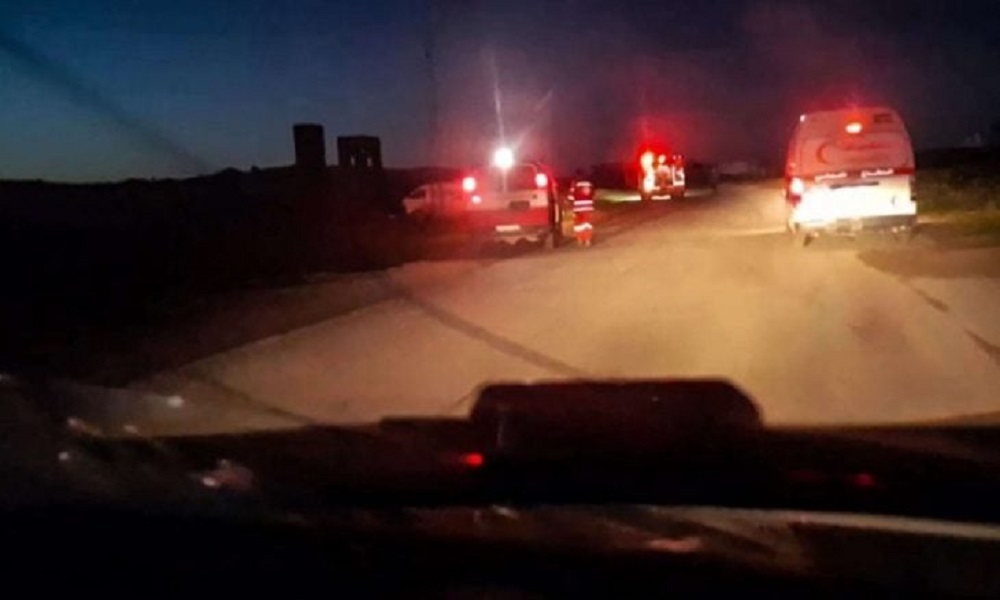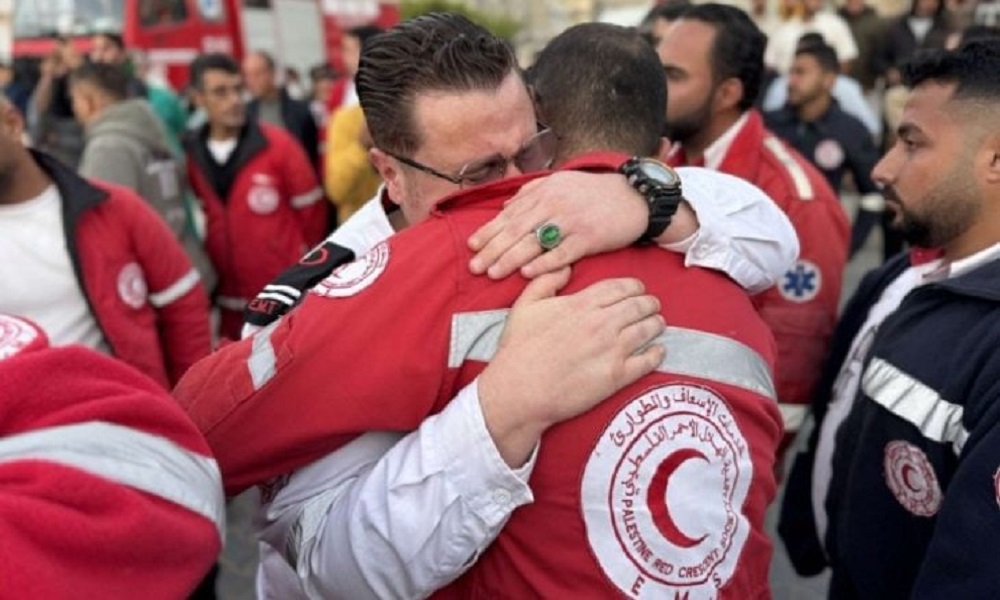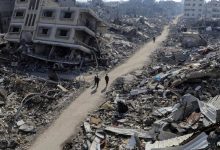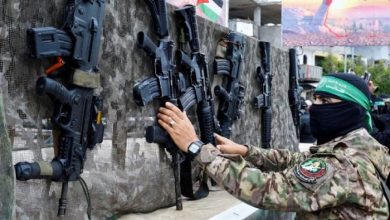Medics’ Massacre Video Shatters Israeli Army Claims and Deepens Public Crisis
New evidence contradicts Israeli military claims, showing Palestinian medics in Rafah were deliberately targeted and buried—sparking calls for an independent investigation.

Watan-While the spokesperson for the Israeli army merely stated that the army is “investigating the incident” in Tel al-Sultan, unofficial voices in Israel have called for an independent investigation into the massacre of the medics—motivated primarily by “cost-benefit” considerations, rather than moral or humanitarian concerns—following the release of a video that dismantles the army’s narrative and confirms its soldiers’ involvement in the execution of 15 members of Palestinian medical teams in Rafah, burying them in the sand.
At the time, the military spokesperson claimed that the army had killed the medics after mistaking them for “terrorists,” especially since they were “driving vehicles without ambulance-specific lighting.” However, the video published first by Al Jazeera and later by The New York Times, which documents the killing without justification, completely undermines the army’s version and exposes the falsehood of its statement.
Will this new scandal reignite anti-war protests and demonstrations, as happened after similar revelations like the “flour massacre”? What’s certain is that the massacre of the medics would have remained hidden in Israel were it not for its exposure in a prominent American newspaper, The New York Times—as is often the case with Palestinian blood, the blood of innocents spilled daily in Gaza.

Global Media Spotlight Intensifies Pressure on Israel After Medics’ Massacre
What further complicates matters for Israel is that major international media outlets highlighted the massacre. For example, The Guardian reported that contact with the medics had been lost for an entire week, highlighting the tragedy experienced by their families—who were called in to identify the bodies of their loved ones, found wearing their blood- and dirt-stained Red Crescent uniforms. The newspaper quoted the father of one medic who said he could hardly recognize his son.
It’s worth noting that the bodies of the medics were discovered last Sunday, after they were killed in a horrific massacre on March 21. They were buried—along with their vehicles—in the sand by an Israeli military bulldozer. According to eyewitnesses, some were bound at the hands or feet.
After the bodies were found, the Israeli army again claimed it did not open fire indiscriminately at an ambulance, but rather at “suspicious vehicles” moving without the markings or lights typical of ambulances.
“Mom, forgive me… I took this path to help people.”
A video found on the phone of one of the paramedics executed days ago in Rafah—part of a group of 15—completely refutes the Israeli army’s narrative. It documents the moment they were directly fired upon, showing clearly that… pic.twitter.com/EMKA1At01P
— Ramy Abdu| رامي عبده (@RamAbdu) April 5, 2025
A Criminal Gang
Since the revelations, unofficial circles in Israel have been preoccupied with the medic massacre, most viewing it through a lens of “cost-benefit,” concerned that it illustrates the army’s issuance of false statements, threatening Israel’s image and its broader narrative in the world. This is reflected in how Hebrew media outlets have covered the story since yesterday—highlighting, to varying degrees, the massacre and the fact that the army’s statement has been disproven by video and sound, and by a prominent foreign media outlet.
As usual, Haaretz stands apart from the rest of the Hebrew media pack, addressing the moral scandal and principled issues in its coverage of the medic massacre and its consequences—not limiting its focus to political damage. It featured the story in a main headline on the center of its front page on Sunday.
In its editorial two days ago, Haaretz emphasized that Israel commits massacres and violations against Palestinian civilians in the name of all Israelis—“who also bear responsibility for this spilled blood.” Yet it appears the majority of Israelis continue to ignore the tragedy of innocent Palestinians in Gaza and beyond—their killing, displacement, and terrorization.

The Idea of a State Is Too Big for Us
Haaretz had previously published an in-depth interview on February 20 with Professor Asa Kasher, the ethical theorist behind the Israeli army’s code of conduct. In it, he said that “brutality within the Israeli army has become broad and deep,” and that the military is escalating its attacks on Palestinian civilians. He added that the state “seems to be run by a criminal gang.” Kasher expressed deep concern over the moral abyss the army has reached, saying that perhaps the entire idea of an independent Jewish state is too much for the Jewish people.
This is one of several reasons that prompted Israeli historian and journalist Tom Segev to say—prior to The New York Times’ exposé of the medic massacre video—“I look back and believe Zionism was a mistake.” In a long interview published in Haaretz’s weekend supplement in honor of his 80th birthday, Segev reflects on the violations and crimes Israel has committed since its founding, as well as the internal corruption and authoritarianism plaguing the country.
Meanwhile, Israeli public radio tried to downplay the severity of the crime by claiming the soldiers who opened fire were on an ambush mission, and that the Palestinian ambulances had approached a vehicle suspected of belonging to Hamas—denying that the soldiers had verified the medics’ deaths.
However, retired General Noam Tibon said in an interview with the same radio station on Sunday morning that the army’s internal investigation into this disturbing incident is not enough. He called on IDF Chief of Staff Herzi Halevi to form an independent investigation committee headed by a senior officer and to present its findings to the broader public.
When asked about the ongoing war on Gaza, Tibon refuted Prime Minister Netanyahu’s claim that military pressure increases the chances of recovering hostages. He said: “Random bombing kills the hostages too—so the war should stop, and we should get them back first and immediately.”
In this context, it’s worth noting that 48% of Israelis believe that continuing the fighting in Gaza does not increase the chances of releasing the Israeli hostages, while 41% think it does, and 11% declined to answer—according to a Maariv newspaper poll published the day before yesterday.




